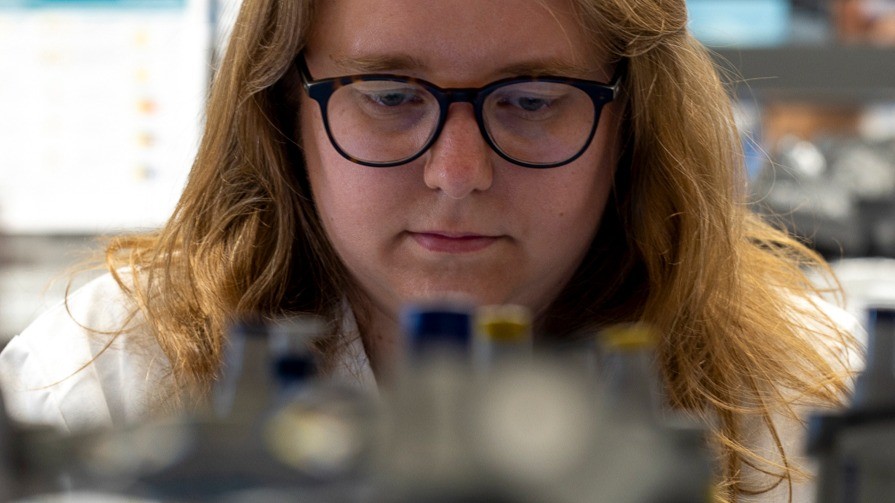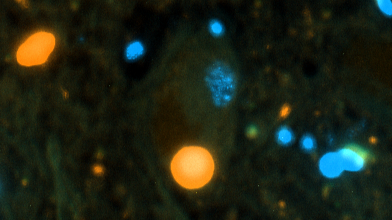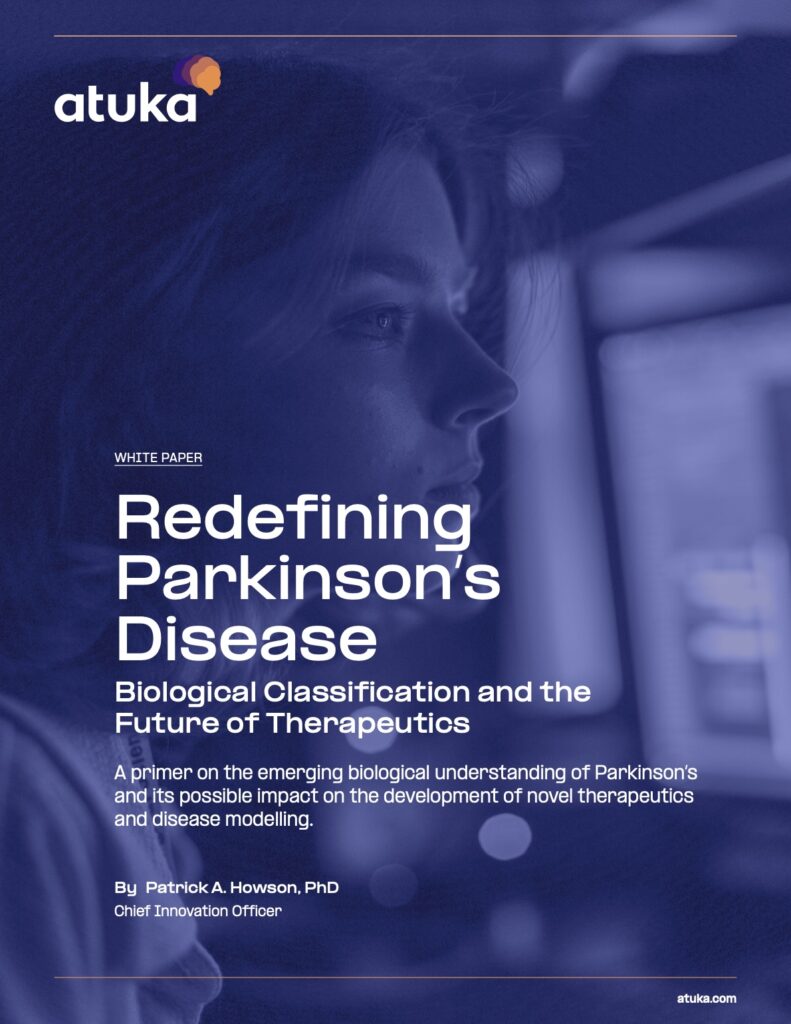The world’s best preclinical neuroscience
For more than 30 years, in collaboration with some of the best partners in the world, Atuka’s scientists have continued to advance both knowledge and research techniques in the field of Parkinson’s disease and beyond. This has led to the development of the broadest range of preclinical animal models for Parkinson’s disease.
BEHIND THE SCIENCE

Listening to Patients, Leading with Science
A conversation with Peter DiBiaso on how patient voices can shape real progress in Parkinson’s research, moving us from token listening to actionable science.

Expanding Frontiers in Neuroimmunology
Jon Brotchie reports back with highlights from the recent Neuroimmunology Drug Development Summit in Boston, in particular how TREM2 is emerging as one of the most promising new targets for Parkinson’s, both in terms of mechanism and the variety of approaches we have to potentially manipulate it.

How AI could help dramatically change the drug discovery process
The upside of integrating AI into the drug discovery process is potentially game-changing, though it’s also important to be clear-eyed and not get too caught up in the hype. Jon Brotchie reflects on AI’s potential benefits in drug development for Parkinson’s, from finding new and better molecules for novel un-imagined…

Parkinson’s disease prevalence is soaring—but is there a good news story hidden in the data?
As Parkinson’s becomes the fastest-growing neurological disorder worldwide, its rising prevalence raises urgent questions about public health and economic impact. Could improved diagnosis, treatment, and life expectancy offer a hidden silver lining within the statistics?

Highlights from Neuroscience 2024
At the annual summit of the Society for Neuroscience in Chicago, it was clearer than ever that collaboration and advancing technologies are central to moving the field forward.
WHITE PAPER

Redefining Parkinson’s Disease
A primer on the emerging biological understanding of Parkinson’s and its possible impact on the development of novel therapeutics and disease modelling.
DISCOVERY SERIES

#1 – D1 PAM
Read the first entry in our new series on the latest research on emerging targets in Parkinson’s Disease
The Potential of D1 Dopamine Receptor Positive Allosteric Modulators
WHITE PAPER

Optimizing Preclinical Studies for Parkinson’s Disease Therapeutics
Strategies to optimize preclinical study design for therapeutic development and reduce translational risk.
WHITE PAPER

The future of gene therapy from a pre-clinical perspective
The potential of gene therapies is finally being realized and these therapies can deliver life-changing treatments for a broad range of disorders.
Atuka’s Chief Innovation Officer Dr Patrick A. Howson explores the past, present, and future of gene therapy.
Published papers
Atuka’s scientists have been publishing groundbreaking neuroscience research for many decades, often in collaboration with other renowned leaders in our field. The peer-reviewed papers collected below track the evolution of both our ongoing research and the field more broadly.
- / 4 Citations
- / 60 Citations
- / 77 Citations
New insights into the organization of the basal ganglia
/ 10 CitationsSerotonin and Parkinson’s disease: On movement, mood, and madness
/ 136 CitationsMechanisms compensating for dopamine loss in early Parkinson disease
/ 72 Citations- / 36 Citations
- / 36 Citations
- / 35 Citations
Non-dopaminergic treatments in development for Parkinson’s disease
/ 93 Citations- / 31 Citations
Dietary resveratrol administration increases MnSOD expression and activity in mouse brain
/ 93 CitationsStriatal histone modifications in models of levodopa‐induced dyskinesia
/ 82 Citations- / 61 Citations
- / 7 Citations
- / 79 Citations
- / 32 Citations
- / 67 Citations
- / 360 Citations
Striatal delta opioid receptor binding in experimental models of Parkinson’s disease and dyskinesia
/ 19 Citations
TALK TO OUR EXPERTS
Advance your therapeutic program
Get the latest science from Atuka
Sign up to receive our quarterly newsletter featuring the latest developments in Parkinson’s disease research.